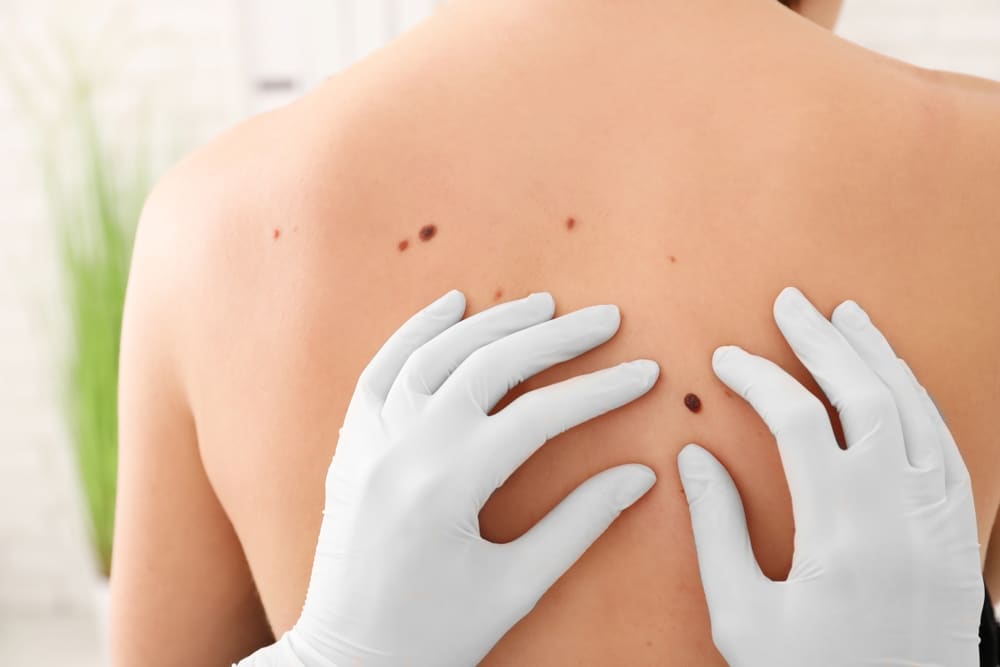Signs And Symptoms Of Skin Cancer
- Author: seoteam
- Published:
Australia, with its sunny climate and scorching summers, has one of the highest rates of skin cancer in the world. Most of us know someone in our lives that has been touched by skin cancer, so it’s crucial to be aware of the signs and symptoms so we can protect ourselves and the ones we love. When it comes to skin cancer, early detection can make a significant difference in treatment outcomes.

Understanding Skin Cancer
Skin cancer occurs when skin cells are damaged, typically by overexposure to ultraviolet (UV) radiation from the sun. There are three main types of skin cancer: basal cell carcinoma, squamous cell carcinoma, and melanoma, each with its own set of symptoms.
- Basal Cell Carcinoma: Basal cell carcinoma, the most common type of skin cancer, often appears as a shiny, pearly nodule or as a flat, red spot that is rough, dry or scaly. It tends to grow slowly and is usually found on areas exposed to the sun, such as the head, neck or shoulders.
- Squamous Cell Carcinoma: Squamous cell carcinoma can appear as a firm, red nodule or a flat lesion with a scaly or crusted surface. It’s typically found on the face, ears, neck, hands or arms, but can also occur on other areas of the body.
- Melanoma: Melanoma is the most dangerous form of skin cancer. It can appear anywhere on the body and often manifests as a new spot or an existing spot that changes in colour, size or shape. Melanomas can have irregular borders and a variety of colours.
How To Check Your Skin
When checking your skin, ensure you check your entire body, as skin cancers can sometimes occur on parts of the body that are not exposed to the sun, such as the soles of the feet, between fingers and toes and under nails. Use a mirror to check hard-to-see spots, like your back and scalp, or get a family member, partner or friend to check for you.
What To Look For
When checking your skin, look out for:
- new moles or moles that increase in size
- an outline of a mole that becomes notched
- a spot that changes colour from brown to black or is varied
- a spot that becomes raised or develops a lump within it
- moles that itch or tingle
- moles that bleed or weep
- spots that look different from others on your skin
The ABCDE Of Melanoma Detection
The ABCDE of melanoma detection can be a useful guide when checking your skin. Any changes in these areas could be a sign of skin cancer and should be checked by a medical professional:
- A for Asymmetry: Look for spots that lack symmetry, e.g. of you drew a line through the middle of the spot, would the two sides look different?
- B for Border: Look for spots with a spreading or irregular edge (notched).
- C for Colour: Look for blotchy spots in multiple colours such as black, blue, red, white and/or grey.
- D for Diameter: Look for spots that are getting bigger.
- E for Evolving: Look out for spots that are changing and growing.
Prevention Is Better Than Cure
While understanding the signs and symptoms of skin cancer is important, prevention is even more crucial. Protect your skin by seeking shade, wearing sun-protective clothing and applying a broad-spectrum sunscreen with an SPF of 30 or higher. Remember, skin cancer isn’t just a summer concern. UV radiation is present all year round and skin damage accumulates over time.
The Importance Of Regular Skin Checks
Regular skin checks are vital for early detection of skin cancer. Skin cancer can present in various shaped and sized skin lesions and abnormalities not always visible to the naked eye. So, if you’re concerned about a spot or mole, or if it’s been a while since your last skin check, don’t hesitate to book an appointment with our Skin Clinic at Eli Waters Medical Centre.
Our doctors used advanced medical equipment and techniques to accurately identify, diagnose and treat all forms of skin cancer. During your appointment, our doctors will perform a full-body evaluation, carefully examining any skin lesions or moles of concern. If removal or other treatment is required, we will develop a tailored plan for management and future prevention.




